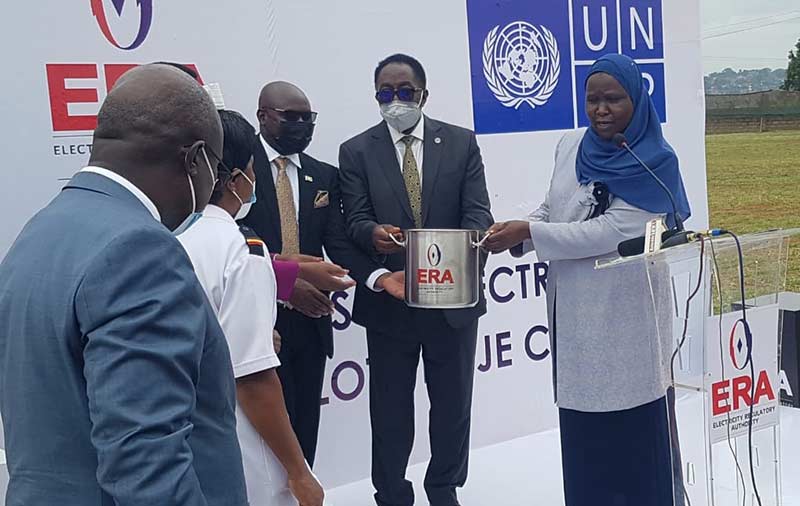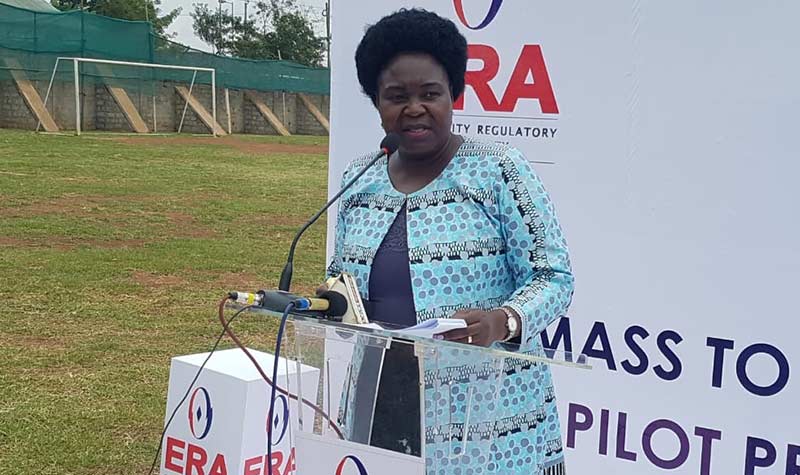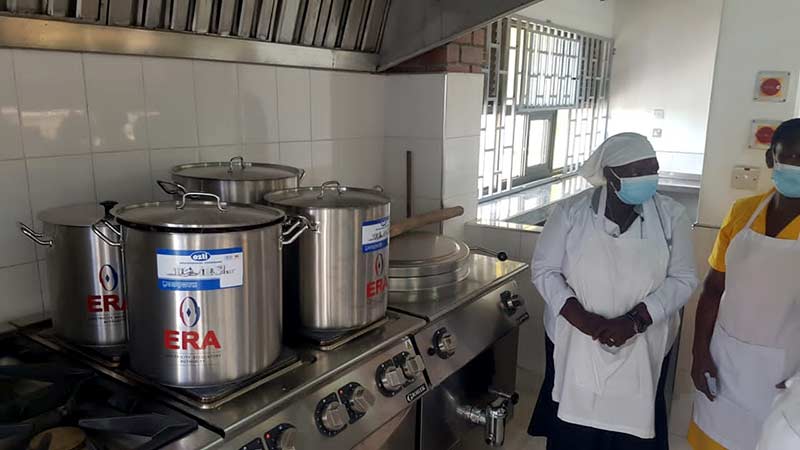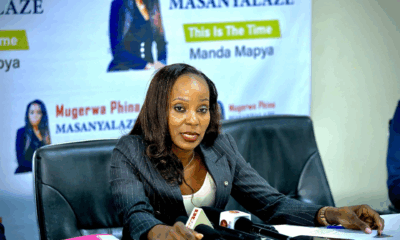News
ERA pledges lower power tariffs for cooking

ERA’s Chief Executive Officer Eng. Zilia Tibalwa handing over saucepans her organisation donated to Mwanamugimu kitchen of Mulago
The Electricity Regulatory Authority (ERA) has pledged to further reduce Power tariffs as one of the incentives to increase usage of electricity for cooking purposes instead of using firewood and charcoal.
Whereas ERA has designed a special tariff to encourage use of electricity for cooking at both domestic and institutional level, the authority says it is ready to ensure the power tariff is affordable and the supply is also reliable.
ERA’s Chief Executive Officer Engineer Ziria Tibalwa says that the authority targets to convert 50,000 households and 500 institutions from using firewood and charcoal to using electricity.
“There could be fears of high electricity tariffs and of unreliable power supply……, as ERA we started this project with these fears in mind looking at them as opportunities. We have designed a special tariff of UGX451.4 per Kilowatt hour for institutions and UGX 412 per Kilowatt hour for Domestic consumers under this project,” said Tibalwa.
She further pledged that ERA is looking at lowering the tariffs as the consumption of Electricity grows, adding that tariffs should not be a big challenge.
On the issue of reliability of Electricity supply, the power industry regulator revealed that ERA has put in place a mechanism for enforcing responsiveness to improve performance of licensees to deliver a quality and reliable service.
Commissioning the Conversion of the Kitchen at Mwanamugimu Unit of Mulago Hospital from use of Biomass to Electricity for cooking as a Pilot Project, the Minister of Energy Ruth Nankabirwa said that 96% of Ugandans use firewood and charcoal, a trend that must be reversed forcefully.

The Minister of Energy and Mineral Development Ruth Nankabirwa is championing the shift from firewood to electricity for cooking
“So, we are being challenged to think critically to see that Uganda comes out of this problem. For sure charcoal is going to be unaffordable, we are even tempted to put taxes on charcoal. We only have to make sure that we have widened the electricity distribution network, lowered the tariffs, made electricity reliable then put stringent measures such as taxes on biomass (Charcoal and wood),” said Nankabirwa.
Nankabirwa added: “We can come up with policies that dedicate the private schools to have their source of energy. (For example,) if you are not using electricity, do you have a forest that sustains you?”
Stressing the targets by the government to increase use of the electricity for social, economic and environmental benefits,
Nankabirwa cited the National Development Plan III, which states that the per capita consumption of electricity has to increase from 100 kilowatt hours to 578 kilowatt hour by the year 2025.
“We also want to reduce the share of Biomass Energy used for cooking from 88% to at least 50%, we also want to increase the share of clean energy used for cooking from a mere 15% to 50% and this can also be achieved through provision of access to clean energy, affordable and reliable electricity,” said Nankabirwa.
The Biomass to Electricity Pilot Project at Mwanamugimu Unit is an initiative by the Electricity Regulatory Authority supported by UNDP to reduce pollution and health hazards associated with cooking using biomass but also to cut the pressure on the country’s forests.
Sheila Ngatia, the UNDP Deputy Resident Representative notes that in November 2020,UNDP received and supported the proposal by the ERA suggesting an experiment to structure tariffs as an incentive towards transformation of institutional cooking in the social sector from using biomass to using electricity because it present a solution to the persistent deforestation trend witnessed in the country.
Ngatia expressed concern for Uganda’s rapidly declining forest cover saying that the country’s deforestation rate stands at 4.1% per annum, representing one of the highest rates on the African continent.
“The total charcoal demand in Uganda stands at 2.09 million tons as of 2019 and if deforestation continues at this rate, Uganda’s forests are at great risk, and if it is not addressed the potential impact on food insecurity, on disease and even potential conflicts are likely to be exacerbated and reverse Uganda’s development trajectory,” Ngatia added.
Because of these alarming statistics, she said the pilot project on power conversion at Mwanamugimu Nutrition Unit Kitchen is very important.
Elizabeth Nankya a cook at Mwanamugimu Nutrition Unit says with the modern cooking technology installed at the facility, food for the children is prepared without losing the nutrients since the cookers have heat regulators so you don’t have to use excessive heat.
She testifies that she no longer gets a headache which is attributed to the smoke from the firewood.
The Executive Director Mulago Hospital Dr. Rosemary Byanyima said: “We want our children that are malnourished to get nutritious food and we do not want the preparation to adulterate and kill those nutrients so we would want that to be replicated even in the bigger kitchen which we use for meals for the rest of the patients and also we should borrow a leaf in our own homes to prepare meals that are nutritious.
Byanyima says that reduced tariffs for cooking at the Nutrition Unit plus a donation of special cookers and saucepans from UMEME and ERA will go a long way in reducing the administration costs at the National referral hospital.
Comments

























